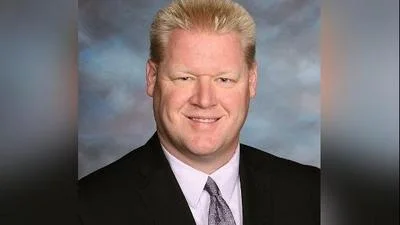Senator Rob Hutton | Official U.S. Senate Headshot
Senator Rob Hutton | Official U.S. Senate Headshot
Divided government often means bold policy ideas go by the wayside. However, even when different parties control the executive and legislative branches, some basic priorities should be universally acknowledged.
The issues that should be prioritized on a bipartisan basis can be summarized as "THESE"—taxes, healthcare, education, safety, and the economy. Lowering Wisconsin's high tax burden is crucial for maintaining its appeal and prosperity. According to the Tax Foundation’s 2022 report, Wisconsin has higher combined local and state taxes than 31 states. The top individual income tax rate of 7.65%, which most small businesses pay, is among the ten highest in the country and second-highest in the Midwest. Additionally, Wisconsin's property tax burden ranks eighth-highest nationally as a percentage of owner-occupied home value.
High taxes drive away workers, retirees, and investments. In 2021 alone, Wisconsin lost 92,000 tax filers representing $4 billion in income; $2.6 billion of this went to states with flat or no income tax at all. Employers, families, and retirees consider taxes when deciding where to relocate.
Lowering this burden must remain a priority not just as a matter of principle but also due to demographic trends that threaten future prosperity for all Wisconsin citizens. A study by Wisconsin Manufacturers and Commerce highlights that Wisconsin is one of only 14 states with a median age over 40. Over the last decade, children under age five decreased by 10 percent while people aged 65 and older increased nearly 42 percent.
From 2010-2020, population growth was less than half the national average; total births dropped to their lowest level since 1979; and fertility rates hit record lows.
Governor Evers’ repeated vetoes of significant tax legislation have been met with disappointment from many quarters. Initially supporting tax cuts only for middle-class incomes defined as $150,000 for couples—proposals meeting this criterion were still vetoed by him.
One such veto halted a true middle-class tax cut that would have saved an average worker $454 annually during times when relief is needed most. Another veto blocked eliminating taxes on retirement income which would have saved an average filer $1,582 yearly—keeping retirees spending within Wisconsin—and yet another stopped a tax credit for married couples that could have saved young families $338 annually.
Only one significant tax victory occurred last session: repealing the state’s personal property tax provided meaningful relief for businesses but was hardly transformative overall.
At some point during this session Governor Evers decided against returning taxpayer money held in Madison’s vaults opting instead to spend it according to his own priorities—a decision seen favorably by special interest groups but deemed wrong for Wisconsin by critics especially given permanently higher living costs continuing upward trends today making efficient governance alongside reduced taxation more critical than ever before if truly aiming towards welcoming prosperous futures ahead retaining working-age residents alongside retirees alike advocating together bipartisanship spirit ensuring thousands struggling Wisconsinites keep more hard-earned money they earn moving forward altogether now






 Alerts Sign-up
Alerts Sign-up